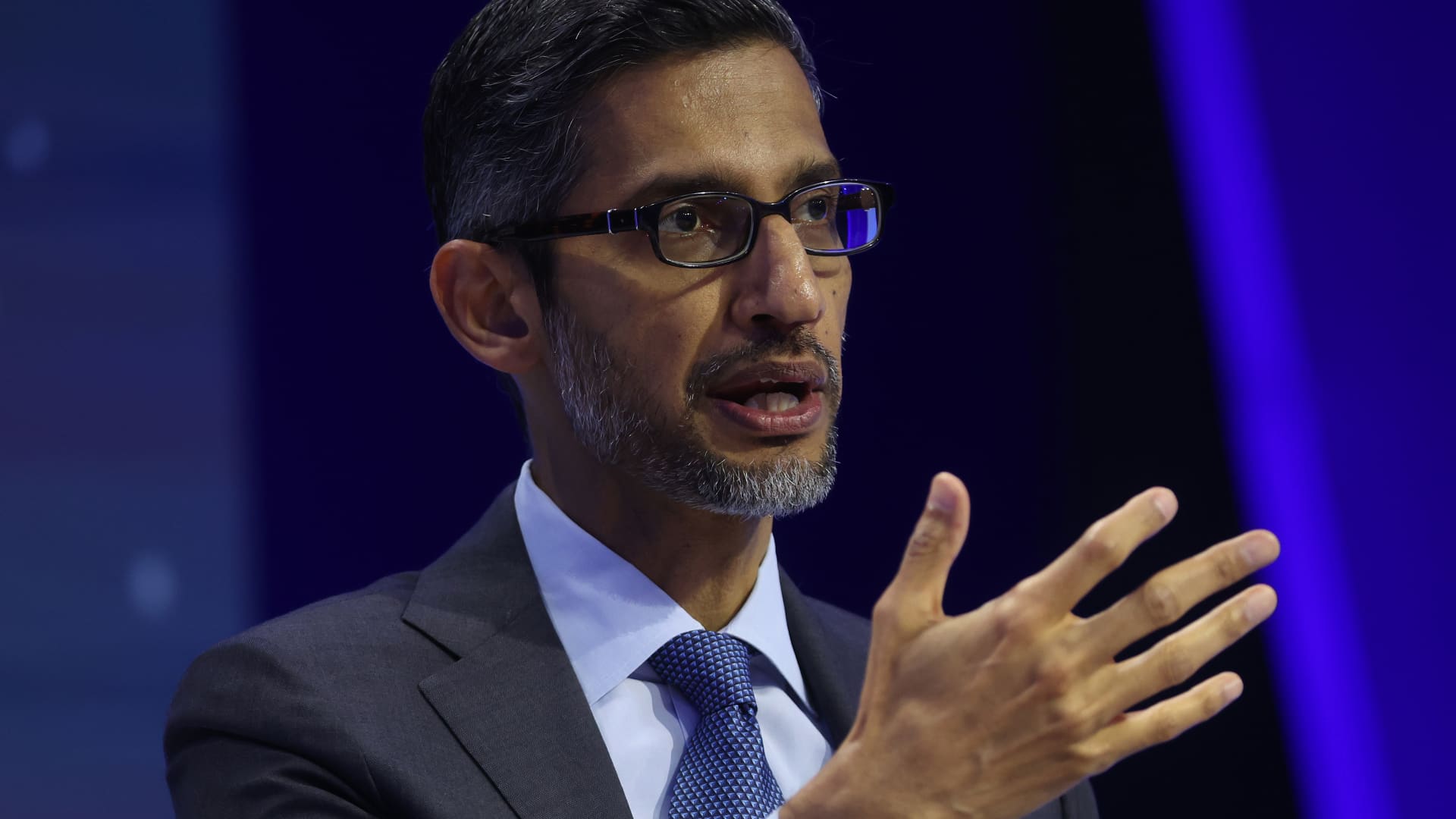
Google CEO Sundar Pichai speaks with Emily Chang during the APEC CEO Summit at Moscone Center West in San Francisco on Nov. 16, 2023.
Justin Sullivan | Getty Images News | Getty Images
In a memo Tuesday evening, Google CEO Sundar Pichai addressed the company’s artificial intelligence mistakes, which led to Google taking its Gemini image-generation feature offline for further testing.
Pichai called the issues “problematic” and said they “have offended our users and shown bias.” The news was first reported by Semafor.
Google introduced the image generator earlier this month through Gemini, the company’s main group of AI models. The tool allows users to enter prompts to create an image. Over the past week, users discovered historical inaccuracies that went viral online, and the company pulled the feature last week, saying it would relaunch it in the coming weeks.
“I know that some of its responses have offended our users and shown bias — to be clear, that’s completely unacceptable and we got it wrong,” Pichai said. “No AI is perfect, especially at this emerging stage of the industry’s development, but we know the bar is high for us.”
The news follows Google changing the name of its chatbot from Bard to Gemini earlier this month.
Pichai’s memo said the teams have been working around the clock to address the issues and that the company will instate a clear set of actions and structural changes, as well as “improved launch processes.”
“We’ve always sought to give users helpful, accurate, and unbiased information in our products,” Pichai wrote in the memo. “That’s why people trust them. This has to be our approach for all our products, including our emerging AI products.”
Read the full text of the memo here:
I want to address the recent issues with problematic text and image responses in the Gemini app (formerly Bard). I know that some of its responses have offended our users and shown bias – to be clear, that’s completely unacceptable and we got it wrong.
Our teams have been working around the clock to address these issues. We’re already seeing a substantial improvement on a wide range of prompts. No AI is perfect, especially at this emerging stage of the industry’s development, but we know the bar is high for us and we will keep at it for however long it takes. And we’ll review what happened and make sure we fix it at scale.
Our mission to organize the world’s information and make it universally accessible and useful is sacrosanct. We’ve always sought to give users helpful, accurate, and unbiased information in our products. That’s why people trust them. This has to be our approach for all our products, including our emerging AI products.
We’ll be driving a clear set of actions, including structural changes, updated product guidelines, improved launch processes, robust evals and red-teaming, and technical recommendations. We are looking across all of this and will make the necessary changes.
Even as we learn from what went wrong here, we should also build on the product and technical announcements we’ve made in AI over the last several weeks. That includes some foundational advances in our underlying models e.g. our 1 million long-context window breakthrough and our open models, both of which have been well received.
We know what it takes to create great products that are used and beloved by billions of people and businesses, and with our infrastructure and research expertise we have an incredible springboard for the AI wave. Let’s focus on what matters most: building helpful products that are deserving of our users’ trust.




